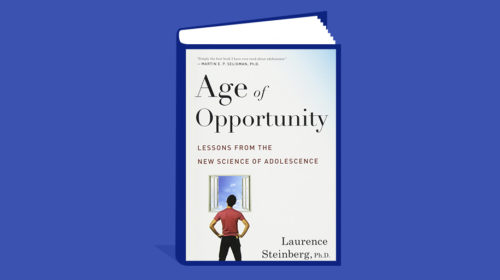
Age of Opportunity: Lessons from the New Science of Adolescence
Laurence Steinberg | Self-Control
Why we love it: Larry Steinberg, the foremost authority on self-control in adolescence, explains why the years between childhood and adulthood are a perfect storm for failures of self-control. This book is full of practical suggestions, based on psychology and neuroscience, for navigating this tempestuous period.
From pages 125-126:
The young adult who can control her thoughts, emotions, and behavior was once an infant who could barely do any of this, and who needed her parents to do it for her.
Three factors govern this transition. First, children must be emotionally secure enough to make the movement from external control to self-management. Second, they must be behaviorally skilled enough to know how to act when they’re on their own. And third, children must be self-assured enough to seek and take responsibility for their own behavior. In other words, in order to develop adequate self-control, a child needs to be calm, competent, and confident.
Psychologists now know that parents whose children are good at self-regulation lay this foundation by doing three things very well from the start. They are warm, they are firm, and they are supportive of their child’s growing sense of self-reliance. If you are a parent and you do these three things from the time your child is an infant, your adolescent will be better able to develop the ability to regulate his feelings, thoughts, and behaviors. If a parent hasn’t done these all along, it is still possible (although more difficult) to stimulate security, competence, and self-assurance during adolescence itself.
Here, then, is a scientifically proven prescription for helping a child develop self-regulation.
